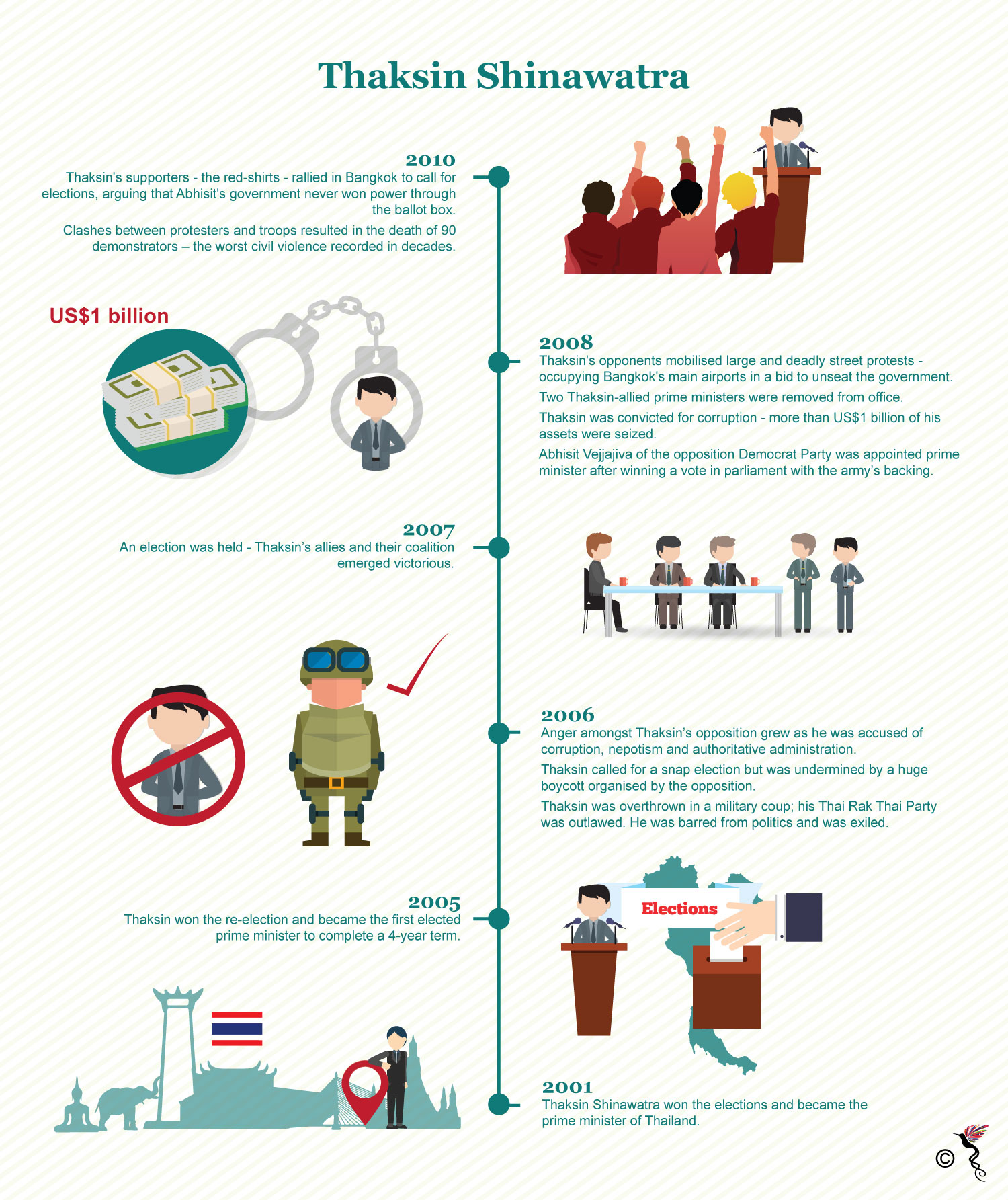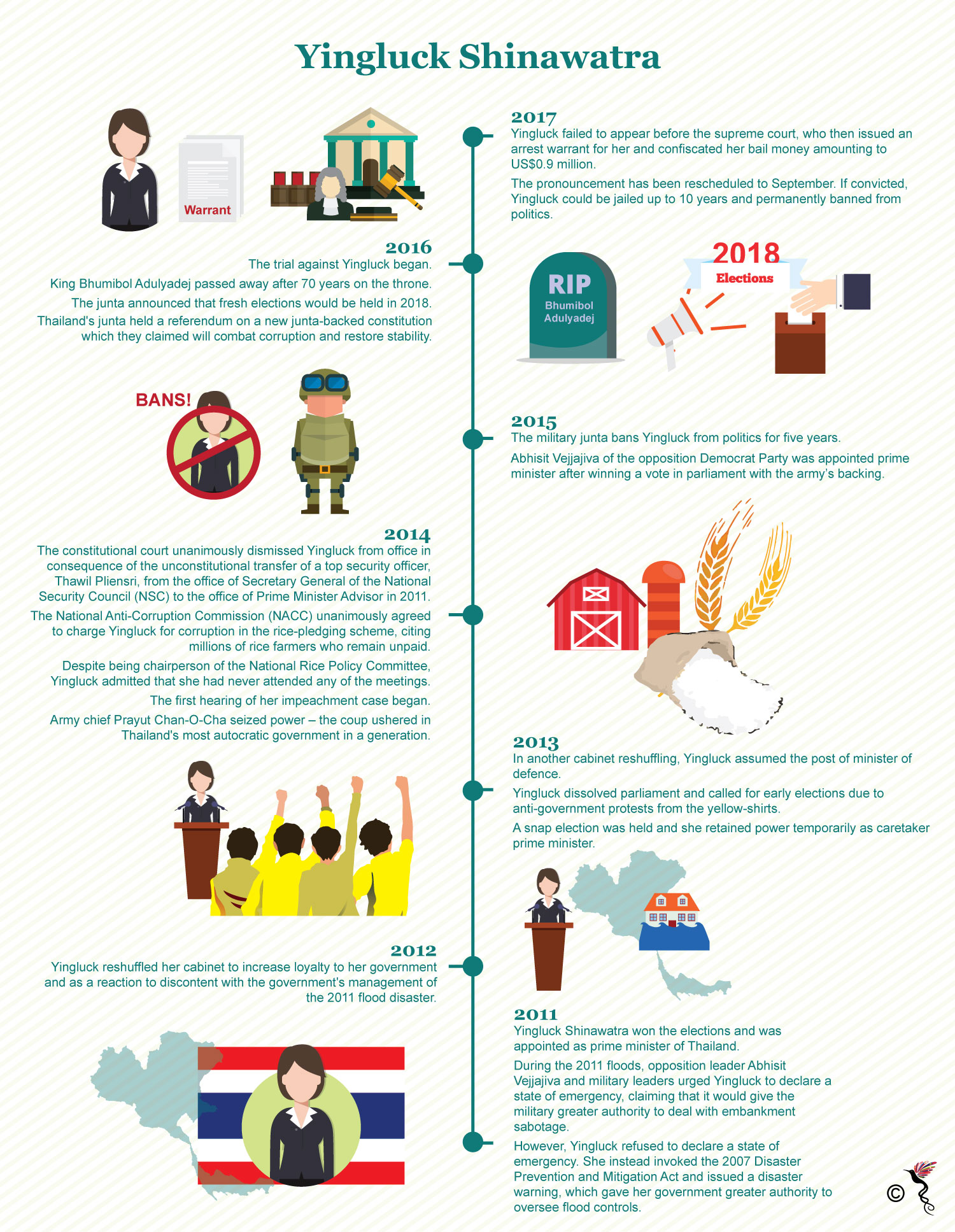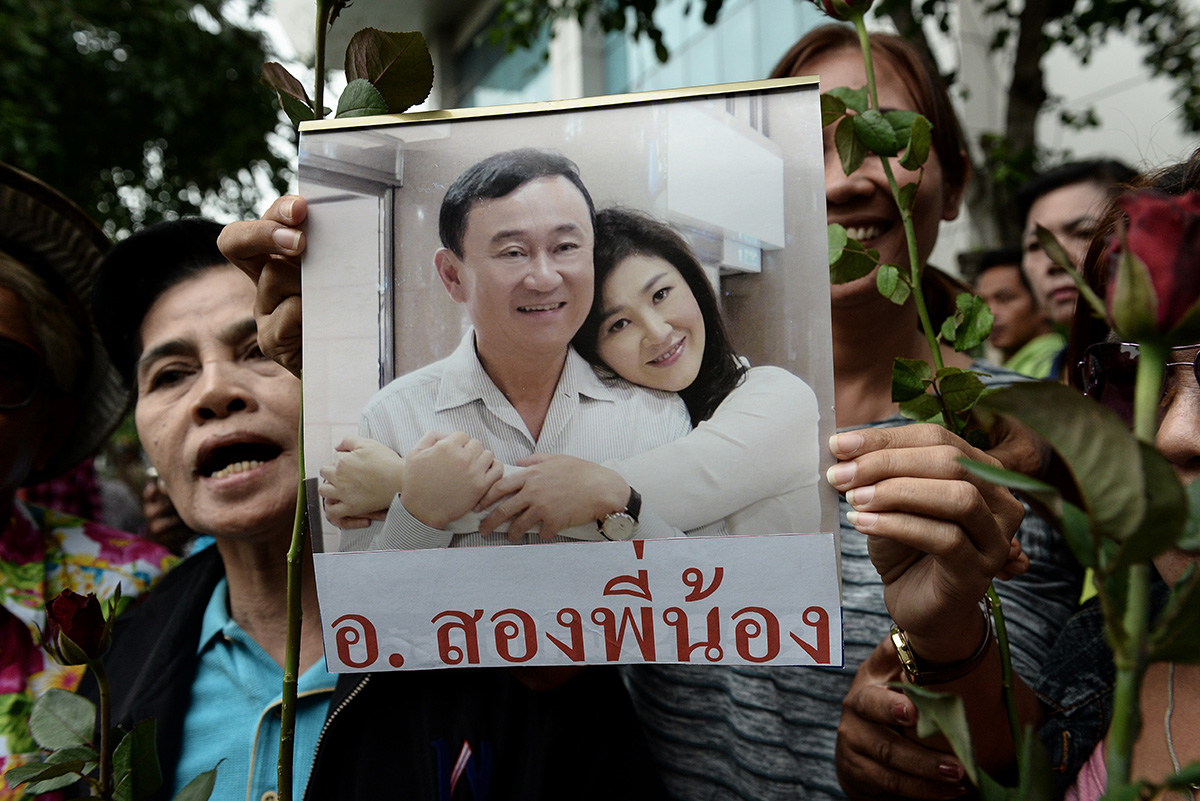Although the Shinawatras ruled the Thai government for over a decade, it was never short of political chaos as they struggled to uphold a democratic Thailand against the autocratic leadership of the military junta. The Shinawatra siblings will always hold a special place in the hearts of the Thai people as they have contributed through various government initiatives and policies in enabling better lives for the local Thai community despite oppositions from the Junta leadership as well as the citizens’ movement called People’s Alliance for Democracy, or better known as the yellow-shirts. They were primarily made up of Bangkok's royalist middle classes and allies of the city's business and military elites.
Thaksin Shinawatra was the first democratically elected prime minister of Thailand in 2001 to serve a 4-year full term and was re-elected in 2005 by an overwhelming majority where a single party - Thai Rak Thai Party - won more than half of the seats in parliament in the historical election. This was followed by his sister, Yingluck Shinawatra’s victory in the 2011 elections winning under the Pheu Thai Party. Yingluck especially was loved by the people who are still devoted to her despite allegations of power abuse. As it stands, she will always be the apple of the nation’s eye.
During Thaksin’s tenure as prime minister, he rolled out policies on universal healthcare, debt relief and farming subsides that addressed issues faced by rural and urban poor that has appealed him to the regular Thais. Yingluck, on the other hand, focused on national reconciliation, poverty eradication and corporate income tax reduction. As a result, the siblings gained strong support from the red-shirts, who were mainly comprised of farmers from Shinawatras' northern rural stronghold and Bangkok's working class.
The entire Shinawatra siblings’ political episode is a throwback to Thailand's autocratic past when democracy was "navigated" by powerful unelected bodies like the yellow-shirts and military junta. Here's the political sequence of the rise and fall of the Shinawatra siblings as compiled from AFP:


Timeline of Thailand's political history under the Shinawatra siblings.
Almost 16 years after Thaksin’s asset consolidation case, Thailand is now facing another high-profile court trial derived from Junta’s political strategy against Yingluck’s alleged negligence of the rice subsidy scheme. The scheme run by the Thai government was intended to control prices around harvest time and boost support among farmers. During the main harvest, there is an oversupply of rice, causing prices to drop and the farmers would suffer great losses. In an effort to address this problem, the government then offered rice-pledging deals where farmers mortgage their rice to the state in exchange for loans (valued higher than the market price for rice during harvest seasons). Farmers would later buy back the rice when the prices increase. Under the Yingluck’s administration, millions of tonnes of rice were bought at double the market value. When the global rice prices dropped significantly, the government was stuck with warehouses full of overpriced rice. Corrupt millers sold, swapped and stole the stockpiled rice, while the rest were left to rot. At the court proceedings, Yingluck was being accused deliberately ignoring repeated warnings that the scheme was being exploited and no longer benefitted the farmers.
“Going forward, we are likely to see elections in 2018. The military will either rule in disguise through elections and pro-military constitution or there will be a civil-military power sharing after elections,” director of the Institute of Security and International Studies (ISIS) Thailand Thitinan Pongsudhirak told The ASEAN Post in an email reply.
Despite all the political chaos that has transpired since 2001, the Thai economy has proven its resilience. Economic growth has been below average on a 3% trajectory without contracting. The economy is somewhat decoupled from politics over the past decade but there is a limit to it. If Thai politics continue to become unstable and violent, adverse economic impact will be unavoidable. However, if Thailand can regain its political stability, then its economic growth can be expected to clock between the 4 to 5 percent range.
In an article written by Pongshudhirak to the Bangkok Post, he opined that “Thailand needs to move on from its two-decade political malaise underpinned by half a dozen elections, violent street protests and two military coups.” Coups must be succeeded by constitutions and elections. The best way to get out of this continuous cycle of coups and military-inspired constitutions is to renegotiate related laws and for all election outcomes to be determined in the democratic arena by the voting public.
A more alarming scenario would be an anti-military backlash and radicalisation of the red-shirts, reinforced by the Shinawatra family. If that occurs, the past will return to haunt the Thais with protests, confrontations and turmoil as the country would be gripped in a deadlock.
